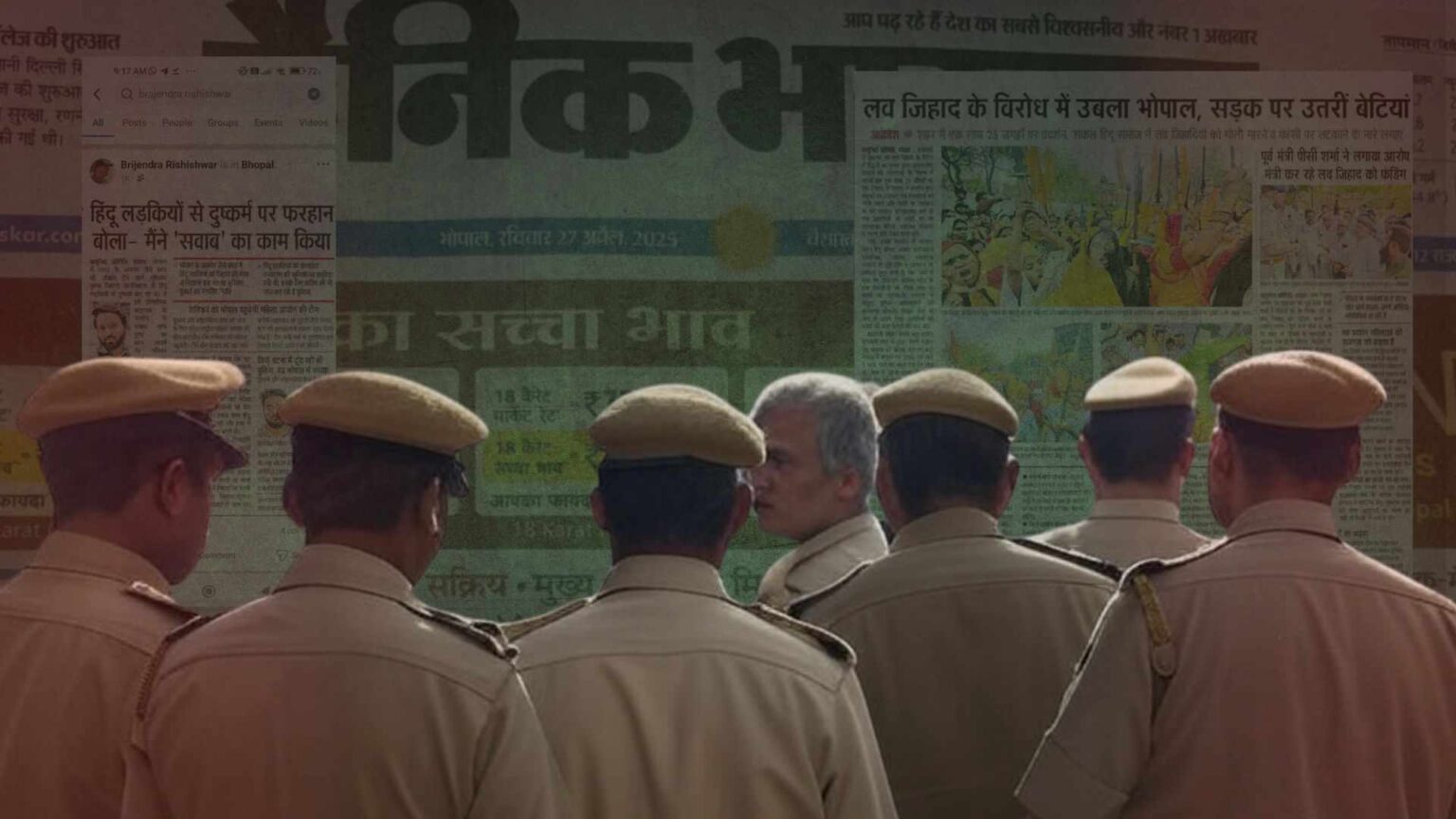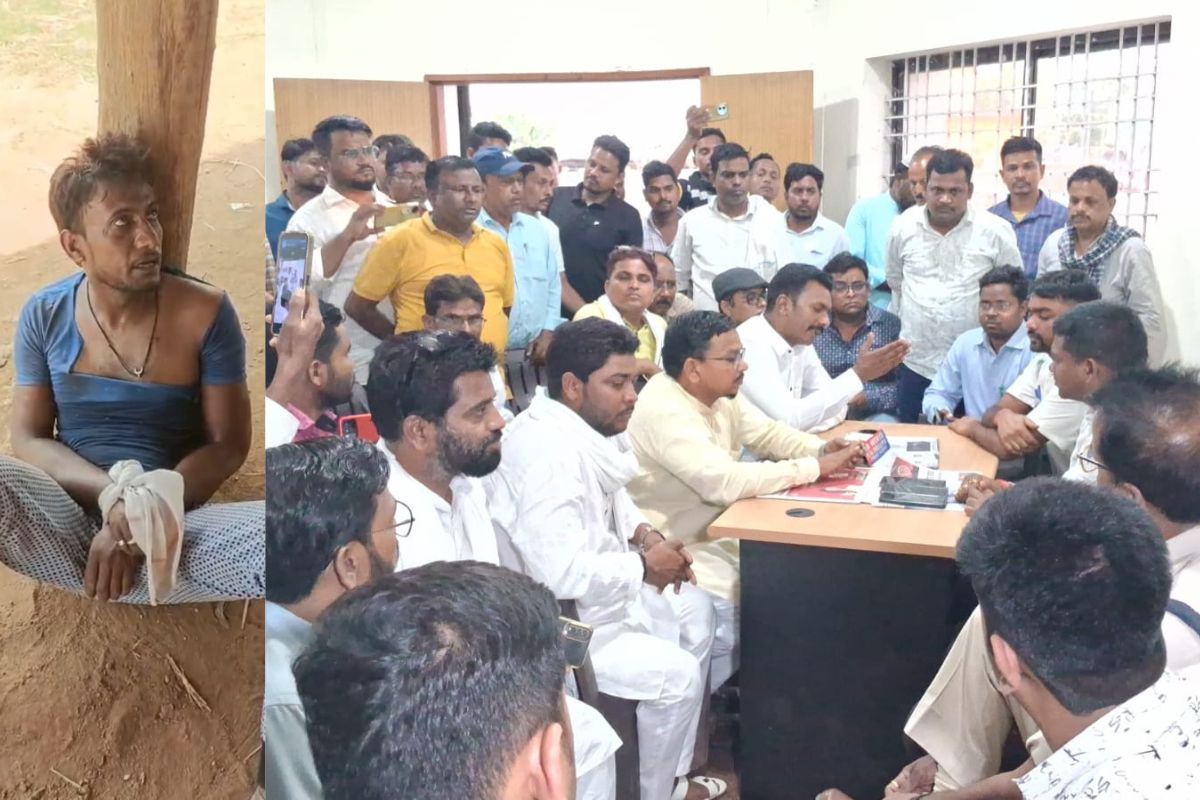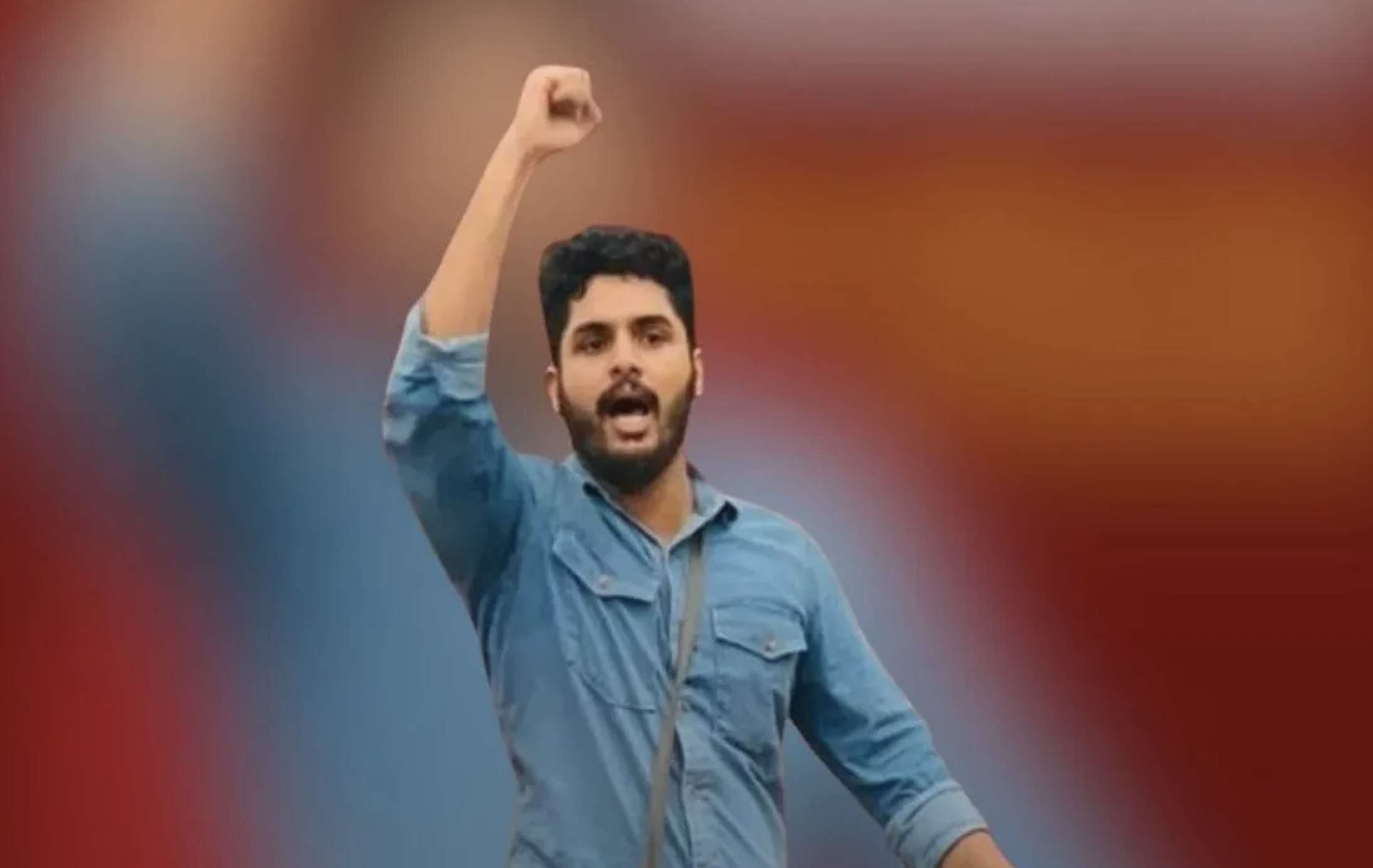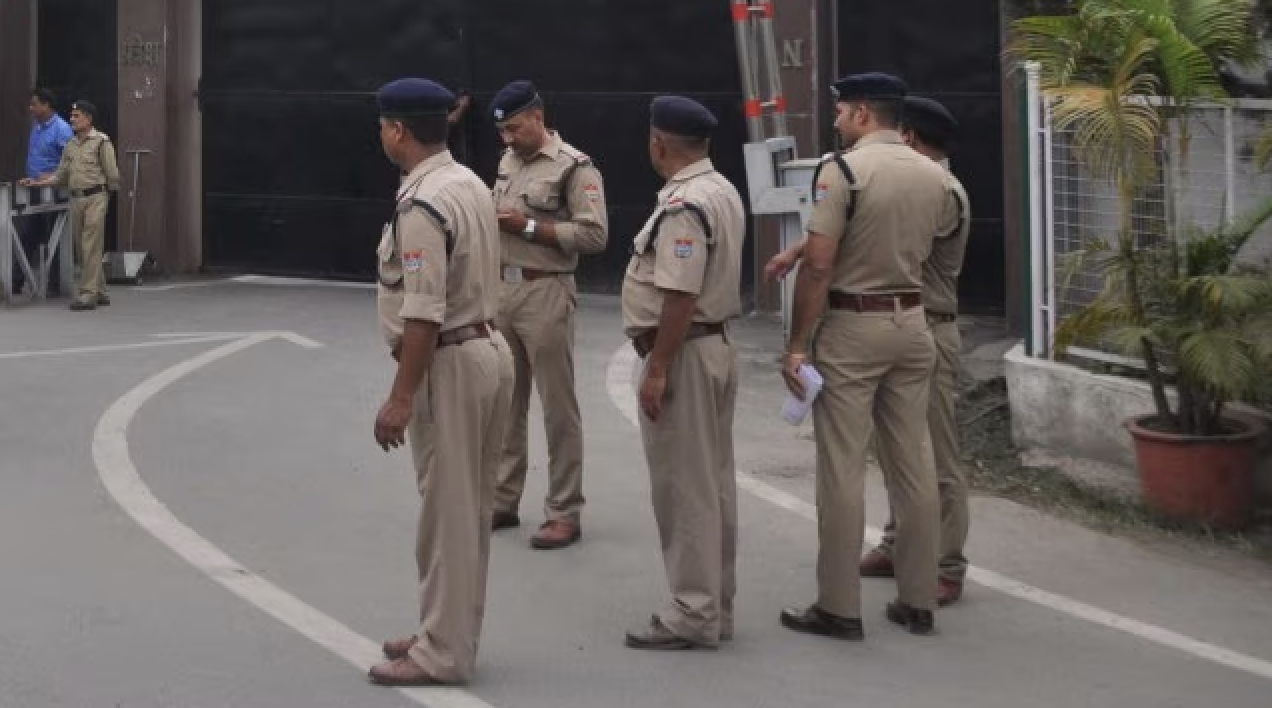
Justice Mathur admits “guilt” about CAA protests’ hearing not being taken to conclusion, criticises “liberal use” of NSA and sedition law, expresses concern over the law and order situation in UP and plays down Madras HC’s “murder” remark against EC. The session was moderated by Assistant Editor Apurva Vishwanath.
APURVA VISHWANATH: As the country grapples with the pandemic, what is the role of the judiciary in this hour of crisis?
…The role of the judiciary is to protect the law, to impart justice to every citizen… Also, if the court notices something wrong, it can take suo motu cognizance… The first responsibility of the court is to protect citizens from any event that is not in accordance with the law. When the government is working, the doctors and police are onboard, then how can the courts remain closed. So we decided to continue… The first suo motu cognizance was taken by a Bench that I was also a part of. Then, as chief justice, I constituted a Special Bench and it is still working. Fortunately, it has given very effective directions and played a very vital role in protecting people from coronavirus in Uttar Pradesh… At present, things are in bad shape as far as coronavirus is concerned.
APURVA VISHWANATH: Can you tell us about your experience of dealing with civil liberty cases?
… In the last few years, the State has been taking several actions or sometimes supporting the mob that is attacking civil liberties of individuals. In such times, it is necessary for courts to protect civil liberties. It is very easy to call any person anti-national… But I believe that 99.9% of the citizens of this country are committed to this nation. They are patriots. I can have a different view on a specific issue and you can have a different view… The government is required to protect this if it is not against the interest of country… What is sedition? If I am raising slogans against some person, if I am opposing some legislation, that doesn’t mean that I am waging war against the State. In Uttar Pradesh, I don’t know what has happened, but many people think that they can take law into their hands, they can punish people on roads and, unfortunately, to some extent, the government failed to protect such people. So it was necessary and it is necessary for courts to intervene.
In Lucknow, in March 2020, posters (carrying photographs and details of people accused of violence during anti-CAA protests) had come up, and the Allahabad HC took suo motu cognizance. The judiciary is always required to come forward to protect constitutional values. Our Constitution is our Gita. It is not only a political or legal document, it is a social document, which is required to be adopted by every citizen of this country, to make our society more civilized.
ASAD REHMAN: Earlier this year, two ordinances — the UP Prohibition of Unlawful Conversion of Religion Ordinance, 2020, and the UP Recovery of Damage to Public and Private Property Ordinance, 2020 — were cleared by the UP Cabinet and they became Acts. Do they stand the test of constitutional validity?
I can’t say what I would have done on it. But yes, I would have protected all constitutional values and rights of the people…
APURVA VISHWANATH: But you had a prima facie view on these legislation?
Yes. I admitted the petitions for hearing only for the reason that prima facie I was satisfied that the provisions were in conflict with our constitutional provisions.
APURVA VISHWANATH: You also passed many orders in cases linked to the National Security Act, and in most cases you suggested that the law was being misused.
The National Security Act came up in 1980, and even at the time there was a huge debate in Parliament about it being prone to misuse… The NSA can’t be invoked in a circumstance which can be dealt with other criminal laws. For the Act to be invoked, first national security has to be at stake. Now, if I express my view, that is not causing any injury to national security. Recently, I read somewhere that if any person is opposing (Covid-19) protocols, he will be dealt with under the NSA. Our system, our Constitution doesn’t permit for such liberal use of the NSA.
APURVA VISHWANATH: So when the government perceives something like cow slaughter to be a matter of national security…
No, not at all. These are not issues of national security. Security is quite a big thing. There is an advisory board also (for the Act), but I have noticed that the orders passed by it are mechanical in nature. Maybe because two of the members on it come from bureaucracy or are nominated. These are political appointees, these nominations are political nominations, and while making political nominations the government must be aware that a statutory duty has to be discharged very seriously. No hanky-panky business must go on there.
APURVA VISHWANATH: In recent days, many high courts have asked tough questions of the government regarding the pandemic. You have passed orders linked to misuse of the NSA. Do these orders bring about any change?
In the constitutional structure, the judiciary is also a face of the State. The executive, legislature and judiciary need to have respect for each other. Unfortunately, sometimes, bureaucrats, and even political persons, consider the judiciary a rival. Judiciary is not a rival, it is just extending its support to the State. The State does not mean any political party or government led by a political party or a person. The State is the Union of India or a state government. We are taking care of the State, which includes its fundamental unit, its citizens. I fail to understand why the Executive opposes the judiciary… However, I also feel that the judiciary should not interfere in every matter, especially those that are linked to small policy issues and are not affecting constitutional rights.
MANRAJ GREWAL SHARMA: The legal fraternity seems quite hesitant to say anything to the executive when a case goes to the Supreme Court. But earlier this year, in a love jihad case where two Muslim men were booked under the anti-conversion law, when the UP Police said that the case was before the Supreme Court, you responded that it doesn’t preclude the high court from answering a challenge to the law.
We have the Union judiciary as well as the state judiciary. Now, if an order of the state high court is challenged before the Supreme Court, that doesn’t mean that the high court should stop its work. Only if a stay is granted that should happen. When a judge is appointed, they take an oath which says that they will work fairly and fearlessly. Every judge is under oath to work fearlessly.
APURVA VISHWANATH: In the case of the anti-CAA posters, while the Allahabad HC ordered for them to be removed, the state went to the Supreme Court. Do such parallel proceedings undermine the high court’s orders?
The Supreme Court admitted the Special Leave Petition for hearing and an interim order was also passed. Then, an ordinance was introduced (UP Recovery of Damage to Public and Private Property Ordinance, 2020), which went on to become an enactment. So, the direction given on the suo motu petition became infructuous at that stage. The enactment was challenged and a Division Bench, of which I was also a part, admitted the petition. Unfortunately, it was in March last year, when the pandemic struck. Though that matter was listed, for some reason it had to be adjourned. It has been more than a year, and the court has failed to decide the issue… I feel guilty for the delay.
APURVA VISWANATH: There were a clutch of cases linked to the anti-CAA protests. People’s properties were being auctioned… While the court put a stay, why was the larger case not heard?
In 90% of the cases, the courts gave interim orders, protected people and many of those arrested were released. The fine imposed was also stayed in 100% cases. So interim relief was granted… But yes, as far as the validity of provisions (under the ordinance) is concerned, that should have been decided by the court at the earliest. Because of certain unavoidable reasons, including the pandemic, the court failed to do so.
NIRUPAMA SUBRAMANIAN: Do you think that somewhere the leadership’s commitment to the Constitution also needs to be addressed?
Very frankly, yes. You see, when you are making decisions on the basis of caste and not on merit… I am talking about the political arena… In my younger days, casteism was a negative thing. Now, while deciding candidates for constituencies, caste plays a vital role, tickets are given based on it… There is another tendency in the executive these days, to leave things on courts. They don’t want to take any action… There is no effort on the part of political parties as well as the executive to have constitutional values as our social values. Some political parties or NGOs must be doing something about it, but I have not seen any result because it is still about whether I am Hindu or Muslim or something else, but not a citizen who has to abide by constitutional provisions… It’s like whenever I get a chance to violate constitutional provisions for my personal gains, I will do that. It is a dangerous phenomenon. Our leaders have also not escaped it. They are also doing the same thing.
ANANT GOENKA: Do you think there is more pressure today on judges than there has been historically?
In my last 17 years, I have had no pressure of any kind. In Rajasthan, I dealt with a number of cases, including the Bhanwari Devi case, where a Cabinet minister ultimately resigned, but nobody dared to tell me anything. But yes, at times some efforts may be made indirectly. If a judge doesn’t take pressure, nobody tells you anything.
… The pressure is of a different kind, when it is about future appointments. The allurement of being appointed as a presiding officer of, say, the Human Rights Commission or any tribunal is very dangerous. Judges should not accept it and Parliament should not make any provision for retired judges to be appointed as heads of any tribunal… We must ensure that enactments for post-retirement employment must be abandoned… I am not going to accept any government assignment in the remaining part of life.
APURVA VISHWANATH: How did you view Justice Ranjan Gogoi’s nomination to the Rajya Sabha?
I would not like to say anything about it.
APURVA VISHWANATH: Would you accept a Rajya Sabha seat?
Never. If I have an opportunity to go to Parliament by contesting an election, I will go, but not by nomination.
ANANT GOENKA: Is the media a factor while cases are being heard in court?
Yes, no doubt. Journalism, at least in subordinate judiciary, plays a vital role during trials. I am of the opinion that there should be no media trial. On a subconscious level, it affects the mind of a judge, especially younger judges. Additional district judges in the age group of 35-37 years are deciding on important trials like capital punishment. Ultimately, judges are also human beings. There must be some code for the media… Not a written code, but mostly ethics which the media must adhere to.
LIZ MATHEW: In recent times, high courts have been burdened with a number of cases linked to ideological issues — love jihad, cow slaughter. Do you think it is a cause for concern?
If an ideological issue or an ideology is in conflict with constitutional provisions, then it is not a simple ideological issue… Like in case of love jihad, the court can’t say that we will not examine the case because it is an ideological issue. If ideology is in conflict with law, we are required to protect the law. But this is not new. In Kerala, when the EMS Namboodiripad government introduced the education Bill, they were accused of implementing their ideology… Eventually, the enactment was set aside. So, this is quite common. Now we get more such cases… In the last few years, we have been in a very weird condition. On the one hand, you want to decentralise power, and on the other you wish to centralise everything in your hands. Our bureaucracy is not interested in leaving its powers, which are available to it from the colonial era.
APURVA VISHWANATH: How important is it to have more women judges?
It certainly matters… In higher judiciary, where the appointment is made by the Collegium, it is difficult. The Bar Council of India, the state bar councils, and even judges must promote women lawyers. You will not find adequate representation from the SC, ST or other minority communities either. It is because there are not enough lawyers from the SC, ST communities or even women… As far as minorities are concerned, I have no hesitation in saying that a different kind of mentality works that a young person from a minority will not be appointed. It is not in the mind of judges but at government level.
…I am a product of the Collegium system, but I have noticed that this system has caused great injury to our justice delivering system… We must think of some alternative… system for appointment of judges.
Apurva Vishwanath: Are you referring to the appointment of Muslim lawyers as judges?
Yes, files are pending with the government.
APURVA VISHWANATH: Is the lacuna on government’s side or in judiciary?
It is in the judiciary itself. As far as the Allahabad High Court is concerned, the difficulty before the chief justice or the Collegium is also in identifying lawyers (who can be appointed judges). There are 15,000-18,000 lawyers. At times, judges who have been working at the court for 10 or 11 years don’t know the name of the lawyer appearing before them. So, the chief justice of Allahabad HC is dependent on several other factors for making recommendations for appointments. A huge volume of work is an issue but the huge volume of lawyers is also a very important issue… The Collegium system needs a 100% (relook). After the failure of the National Judicial Appointments Commission, why did the government leave this entire issue? I fail to understand.
BHUPENDRA PANDEY: The UP government has often ignored directions passed by the Allahabad High Court, including in the Hathras rape case and, more recently, in implementing lockdown in certain areas because of rising Covid-19 cases…
As far as lockdown is concerned, I have read the order. It was passed after my retirement. The court asked (the government) to examine viability of imposing a lockdown in a specific manner. And interestingly, even though an interim order was passed by the Supreme Court (for an interim stay on the Allahabad HC’s order), from that very day there was a lockdown in UP.
In the Hathras case, I am proud of the judges who took suo motu cognizance of the matter. An outstanding order was passed by them… I am of the view that honouring those directions would have enhanced the prestige of the state also. But what happened ultimately? When you talk about the position of law and order in Uttar Pradesh, I don’t think it is up to the mark… I am not saying things like there is jungle raj etc… But it is no less than that.
KRISHN KAUSHIK: Do high courts take their cues from the Supreme Court?
In our constitutional scheme, the Union judiciary and state judiciary are absolutely different. The state judiciary is absolutely independent. But by certain other means, like the State Legal Services Authority Act, there is a window for the Union judiciary to look into the state judiciary. I deprecate that. Next is the Collegium system. It is making a link between the two independent organisations… Judges sometimes are under pressure… as to what has been said by the Supreme Court… It is against the constitutional scheme of the justice delivery system.
VANDITA MISHRA: In recent years, the judiciary seems to have dropped the ball on issues of civil liberties. Is it because of an executive with a decisive majority which is weaponising that mandate, or is it because of the larger process of institutional decline?
If you see the history of Indian judiciary, in the early 1970s, at that time also, a majoritarian executive was there. Today also, it is the same position. At that time, the election of Mrs Indira Gandhi was set aside by the Allahabad High Court, and after 1977, a series of judgments were passed by the Supreme Court as well as by different high courts which were certainly progressive. Those judgments played a very vital role in ensuring civil liberties, personal liberty of a person and so many other fundamental issues. Maybe, the same sort of circumstances are prevailing now… The judiciary can’t be pressurised by a majoritarian executive… I am of the view that most of the judges in this country are working fearlessly.
MONOJIT MAJUMDAR: One of the complaints that the present as well as previous governments have had is of judicial overreach. Do you believe that judges sometimes step out of line?
You used the term overreach and overreaching is always wrong. If anything is overreaching, then a system is prescribed. If the high court has tried to overreach, then go to the Supreme Court. And if the Supreme Court notices that there has been an overreach, it sets aside that order… Some errors happen and everybody is prone to errors. Those are to be rectified.
APURVA VISHWANATH: The Madras High Court recently said that the Election Commission should face ‘murder charge’ for failing to enforce Covid protocols during polls…
Please try to understand the circumstances in which courts work… It is a simple observation, not a hue and cry issue. The media should also understand that during heated arguments, this is quite common… It is not the lead news. Ultimately, it is the order that has been passed by the court that prevails. During these heated arguments, many things are uttered. If you are going to take cognizance of each and every statement, then it would be very difficult.
This story first appeared on indianexpress.com






